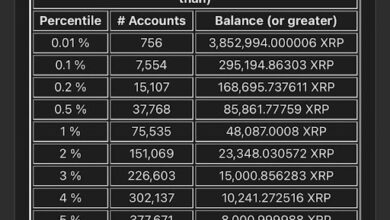
In a captivating discussion on the Think Crypto Podcast, United States Representative French Hill shared his forward-looking perspective on potential changes in the leadership of the U.S. Securities and Exchange Commission (SEC) by 2025. Hill emphasized the critical role of fostering innovation within the burgeoning digital asset industry as the nation moves forward.
A staunch supporter of cryptocurrencies, Hill candidly discussed the possibility of major regulatory transformations, irrespective of the results of the forthcoming presidential election. This election features the contenders, former President Donald Trump, and Vice President Kamala Harris, each with differing views on the digital economy.
The FIT 21 Bill’s Journey and Its Bipartisan Momentum
In the podcast, Hill first tackled the topic of the FIT 21 Bill, a legislative proposal designed to create a comprehensive regulatory framework for digital assets within the United States. Despite the inherent unpredictability that characterizes legislative processes, Hill pointed to a burgeoning bipartisan consensus among lawmakers as a hopeful sign for the cryptocurrency sector.
Hill highlighted Trump’s endorsement of digital assets, referencing the former president’s active participation in the 2024 Bitcoin National Convention in Nashville. This involvement has, according to Hill, galvanized the Harris campaign to engage more proactively with pro-innovation Democrats. This political dynamic could be instrumental in advancing legislation like the FIT 21 Bill.
Should the FIT 21 Bill not be enacted by the end of the current year, Hill remains optimistic about reintroducing pro-cryptocurrency legislation in early 2025. He predicts a substantial transformation in the House of Representatives, with the potential introduction of over 60 new members following the November elections. This shift could be pivotal in ensuring that the groundwork laid by cryptocurrency advocates and legislators over recent years will finally come to fruition.
Rep. Hill’s Insights on Pro-Crypto Leadership at the SEC
During the interview, Hill also addressed the intriguing idea of Bitcoin serving as a U.S. reserve asset, a proposal championed by Trump and Senator Cynthia Lummis. This suggestion aims to tackle the national debt, which currently looms at an alarming $35 trillion. While the feasibility of this proposal remains in question, Hill supports Trump’s advice that the U.S. Treasury retain its Bitcoin holdings, many of which originate from the seizure of the Silk Road marketplace.
In response to Trump’s comments about potentially dismissing SEC Chair Gary Gensler upon reclaiming the White House, Hill clarified that the SEC functions as an independent entity and that Gensler’s term is set to continue until 2026. Nevertheless, Hill noted that it is customary for new presidents to request executive officials to resign. Hill has been vocal in his criticism of Gensler’s performance and leadership, particularly in his handling of cryptocurrency issues. He advocates for a future administration to appoint a leader more in tune with pro-innovation policies by 2025.
Intriguingly, Hill also spotlighted Commissioner Hester Peirce, affectionately known in the cryptocurrency community as “Crypto Mom,” as a promising candidate for SEC Chair. Hill expressed confidence that she would excel in the role of SEC Chair, given her pro-crypto stance and deep understanding of digital assets.
A Glimpse Into the Crypto Market Landscape
As of the latest data, the overall cryptocurrency market cap valuation stands at an impressive $2.28 trillion. This figure underscores the growing significance of digital assets in the global financial landscape and highlights the need for thoughtful and forward-thinking regulatory measures.
In conclusion, the insights shared by Representative French Hill offer a glimpse into the potential future of cryptocurrency regulation and leadership at the SEC. With bipartisan support growing for pro-crypto initiatives, the coming years could prove to be pivotal in shaping the regulatory environment for digital assets in the United States. As policymakers and industry leaders continue to engage in dialogue, the focus remains on fostering innovation while ensuring robust regulatory frameworks that protect investors and promote growth in the digital economy.
“`
This enriched content is designed to enhance SEO compatibility, making it more engaging and informative while maintaining originality.







